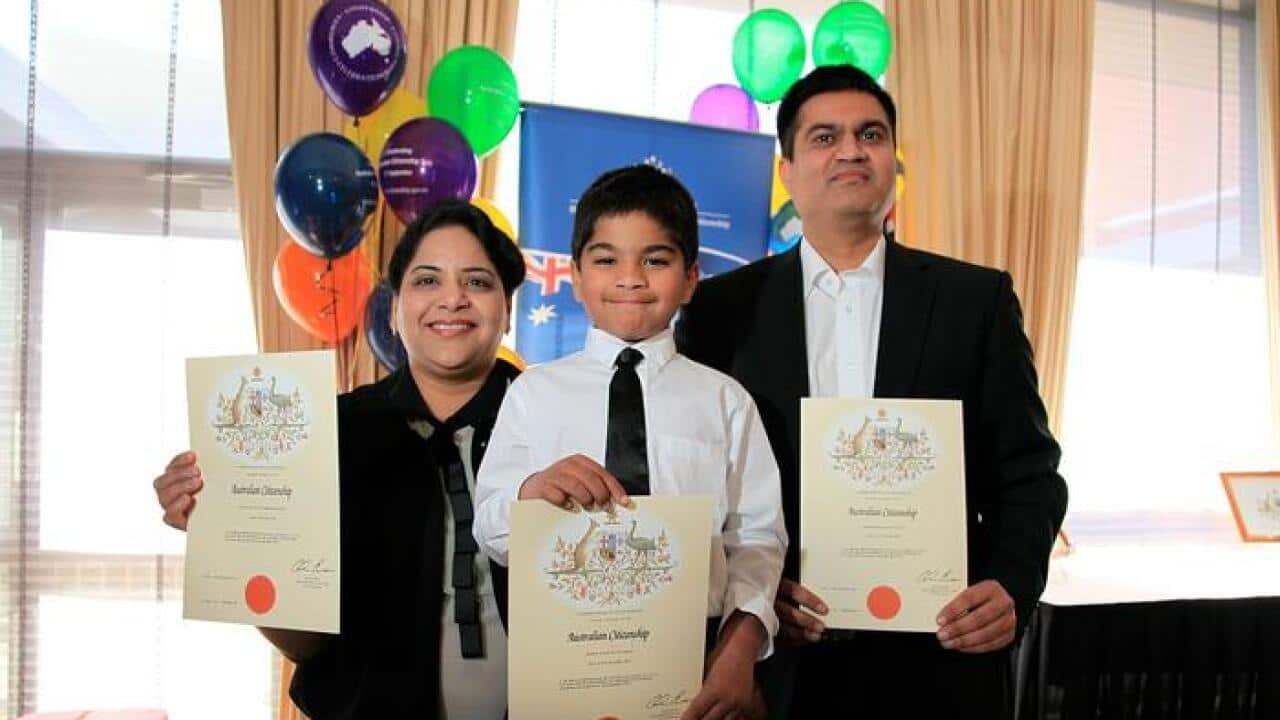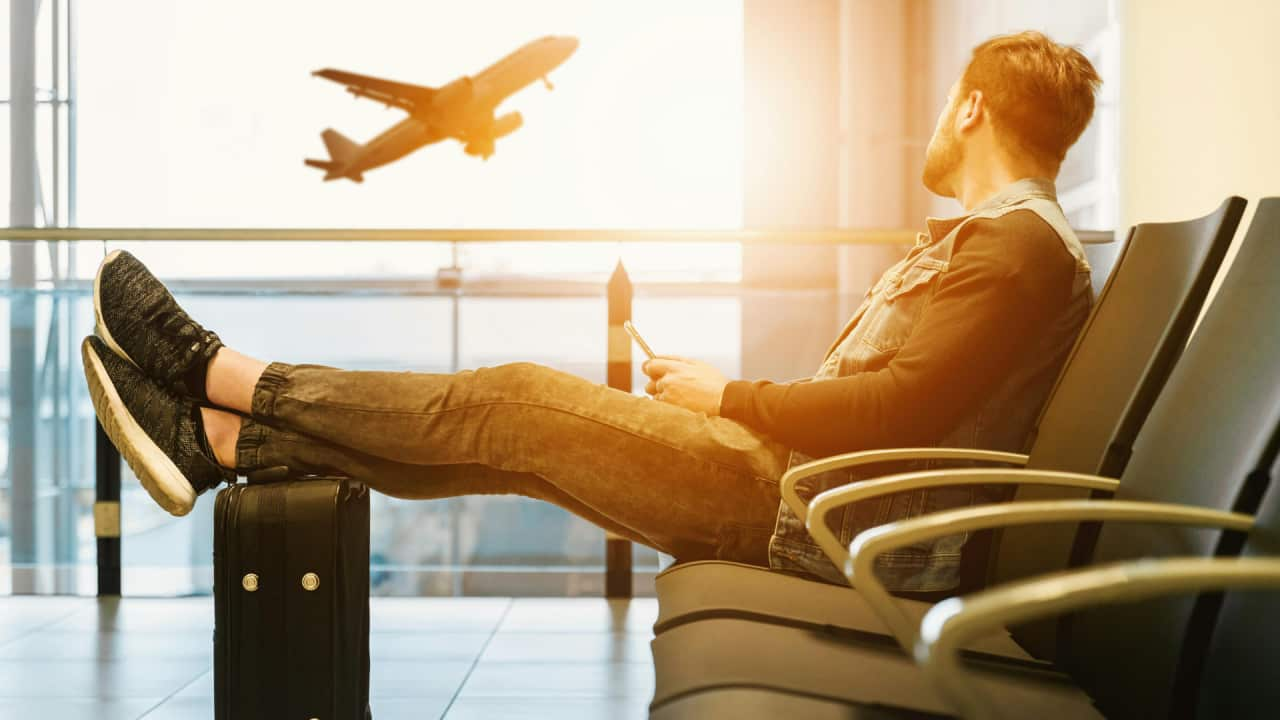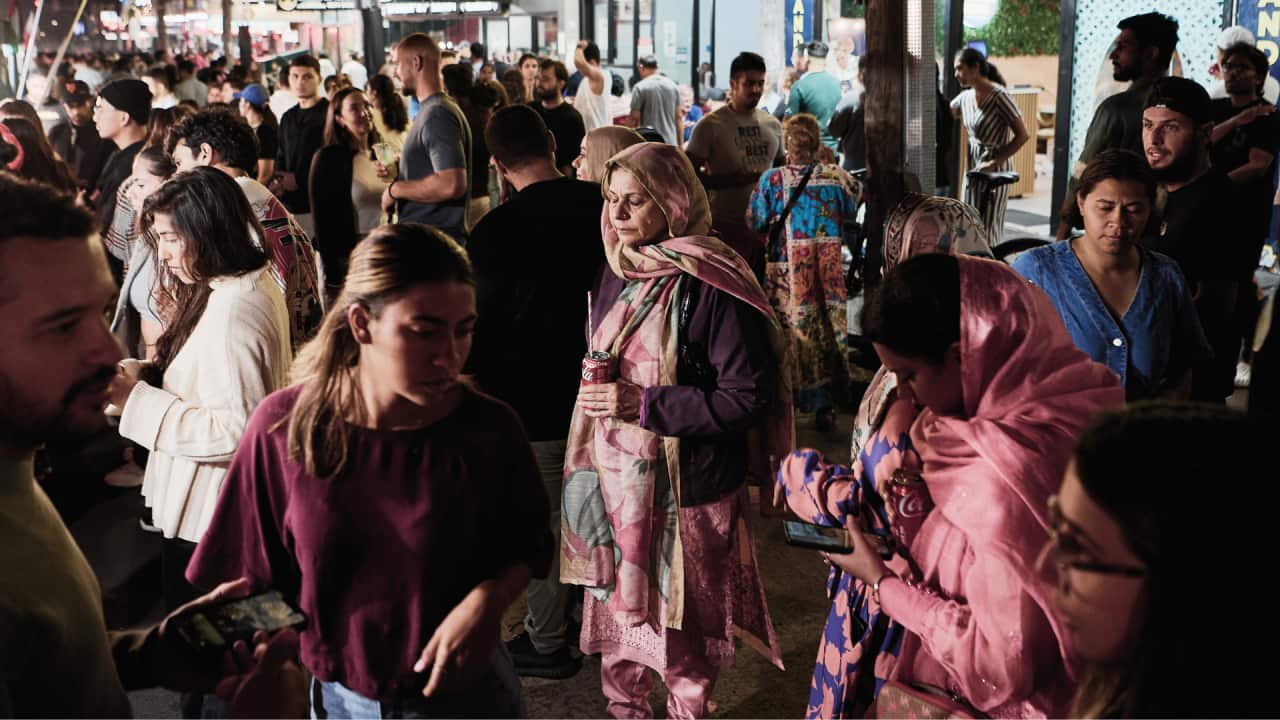More than five million people have been granted Australian citizenship since 1949.
The final key step is the citizenship ceremony where people pledge their loyalty, and accept the rights and responsibilities as an Australian.
Permanent Residency
Ruby Fowdar is a migration agent from Brisbane-based Australian Immigration Agency.
She explains that the prerequisite to Australian citizenship is ensuring that you are eligible to apply.
“The requirement for migrants is that they become permanent resident first,” says Fowdar.
“And once they are permanent resident and have lived in Australia for four years, and been a permanent resident for one year, they will be eligible to become citizens.”
Application processing time

According to Damien Kilner from the Department’s Family and Citizenship Program, for most applicants, the average processing time for citizenship is 14 months.
Citizenship test
Applicants must also pass the Australian citizenship test to show their knowledge of Australia and understanding of the privileges and responsibilities as a citizen. An Australian citizenship recipient displays his certificate during an citizenship ceremony on Australia Day in Brisbane, Thursday, Jan. 26, 2017
An Australian citizenship recipient displays his certificate during an citizenship ceremony on Australia Day in Brisbane, Thursday, Jan. 26, 2017

“It’s really looking at: have you got a basic level of English?” says Damien Kilner.
The 20-question multiple-choice citizenship test is based on the online booklet ‘’ which is an overview of Australia, its democratic beliefs, rights, government and law.
Most people pass the test with a pass mark of 75 per cent. .
Proposed changes to Citizenship laws
But things could get tougher for aspiring citizens, with the Department of Home Affairs proposing to temporarily ban applicants from sitting the citizenship test after multiple failures.
“But it’s up to passage of that legislation getting through."
The government is proposing that applicants sit a separate English test to prove that they have a “competent” level of reading, writing, listening and speaking, which is equivalent to an IELTS level of 5.0.
People aged over 60, children under 16, those with hearing, speech or sight impairments, and people with physical or mental incapacity, are not required to sit the test.
Another major change that could come into effect from this July is the extension of the required period of permanent residence from one to four years, subject to the passage of legislation.
Will Australian citizenship requirements change in 2018?
Though a date has not been set for bringing the bill back to the Parliament, the Home Affairs website has shared the new requirements for citizenship which will come into effect from July 1st 2018.
The Citizenship Pledge

There are two versions of the Pledge, one that mentions God, and one without.
“Taking a pledge is a part of being a commitment as the final step in officially becoming an Australian citizen,” says Damien Kilner of the Department of Home Affairs.
“It also signals a person’s commitment to being active member of our society as well.”
The Citizenship Ceremony

Most ceremonies are held by city councils, generally lasting between an hour to two hours.
It normally takes three to six months for applicants to be invited to a ceremony once their application is approved.
“The mayor or lord mayor or a chief executive officer of the council, who’s the presiding officer, is required to read the preamble, which is specified within the Citizenship Act, which provides further information to all the attendees around the citizenship ceremony,” explains Kilner.
“There’s also a ‘welcome to nation’ or ‘welcome to country’, and the minister’s message is read, the anthem is played, and then there is the pledge made by those that are attending.”
What happens at a citizenship ceremony?
26 January is a big day for Australian migrants to become Australian citizens. Here's what you need to know about preparing for your citizenship ceremony.
Soon-to-be citizens need to bring their personal identifications in order to attend the ceremony.
“What’s expected is that when somebody turns up at the ceremony, the Council or our staff would check the identity of the person attending so that we can be satisfied who they are,” says Kilner.
"So, the vast majority of people will have their driver’s license or their passport with them."
Ruby Fowdar studied and worked in regional Queensland before being granted citizenship.
“I actually had my citizenship ceremony on Australia Day, I wanted to do it on Australia day on 26th January,” says Fowdar.
“It was really proud moment, my name being called out and they give a certificate saying, you’re Australian citizen, you belong to this awesome community as of now.”

Further resources:
For more information on how to become an Australian Citizen, visit:
For people requiring language assistance can call the on 131 450.







